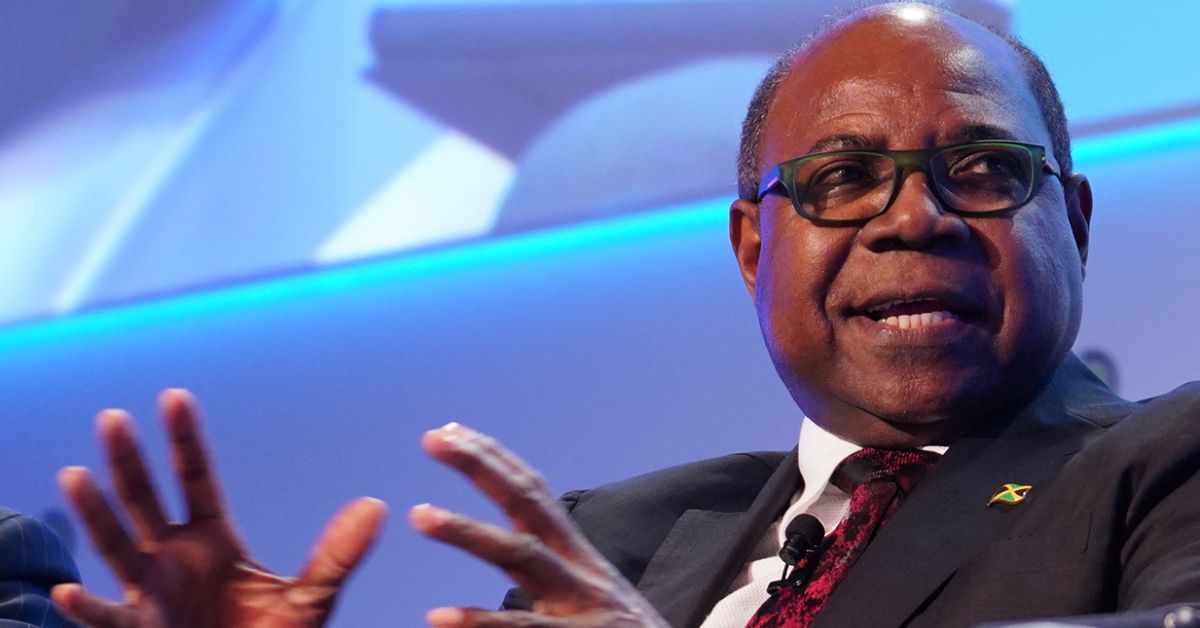DUBAI – The future of tourism and technological advancements are inextricably linked, Jamaica’s Tourism Minister, Edmund Bartlett, told TRENDS on the sidelines of the recently concluded Annual Meeting of Global Future Councils in Dubai.
Highlighting the transformative role of technology in the tourism sector and the future of work in the industry, Bartlett said, “This is the age of knowledge, and knowledge will define how the world functions.”
He emphasized the role of virtualization in shaping tourist experiences. With the emergence of the metaverse, consumers can now “feel, touch, and experience” a destination before actually visiting it.
As evidence, Bartlett pointed to Jamaica’s innovative approach during the COVID pandemic, where they hosted virtual weddings for 140 couples from around the world, later inviting them to experience the warmth of the destination firsthand.
Also Read ‘Technology may help bridge global economic divide’
Bartlett underscored the dynamic changes taking place in the tourism sector and the crucial role technology will play in its evolution.
The Jamaican minister highlighted the significance of artificial intelligence (AI) in training and developing the tourism sector’s human capital.
He said that AI, augmented reality (AR), virtual reality (VR), and mixed realities will revolutionize how education and training are delivered in the tourism industry.
“Transforming the entire educational system for tourism work and training is essential,” Bartlett added.
While discussing the steps Jamaica is taking to upscale its tourism workforce, Bartlett emphasized the creation of the Jamaica Centre for Tourism Innovation. This institution aims to upskill workers on the job and introduce new curricula in high schools.
The minister said that they are introducing an associate degree program in high schools to acquaint students with the essential cognitive tools for the industry.
Regarding training tools, Bartlett confirmed that Jamaica uses a hybrid model, blending both online and offline methods.

He mentioned an AI AV program that has been training large numbers of semi-skilled and unskilled workers, highlighting the technology’s scalability and portability.
Discussing international cooperation in the realm of tourism and technology, Bartlett noted a mix of North-South and South-South collaborations.
“While the technological hub appears to be in the North, the South is demonstrating significant ambition due to the easily transferable nature of technology,” he said.
“The South is gaining strength, and we anticipate a surge in South-South activities in the future, driven by technology,” Bartlett told TRENDS on the sidelines of the recently concluded Global Future Councils meeting in Dubai.
The Global Future Councils emphasize the strategic partnership between the UAE government and the World Economic Forum (WEF). They witness participation from approximately 600 leaders and officials across government, private sectors, international organizations, and academic institutions, including distinguished experts and futurists.
These councils are committed to shaping visions for the future, tackling global challenges across various domains such as the economy, technology, geopolitical shifts, infrastructure, health, society, the Fourth Industrial Revolution, artificial intelligence, environmental and climate issues, governance, and more.









